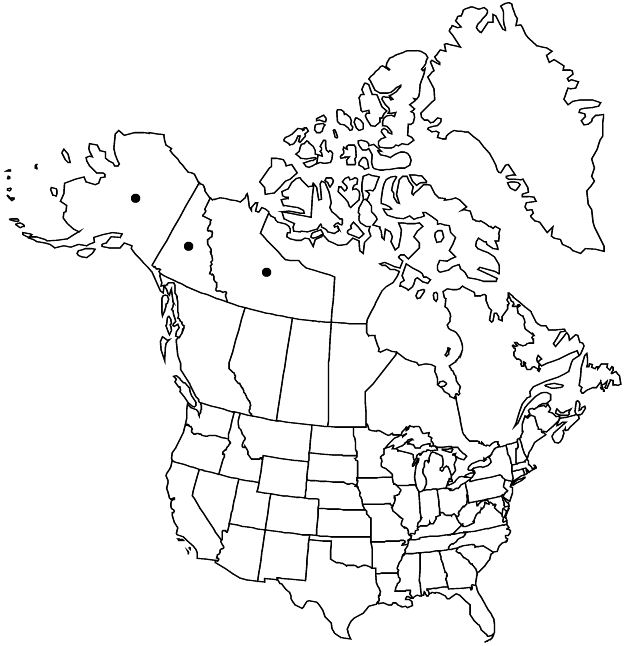Dryas incisa
Izv. Glavn. Bot. Sada S.S.S.R. 28: 312, 323. 1929.
Plants 1–9.5 cm. Leaf blades oblong-elliptic to lanceolate, 4–16(–25) × 1–6(–10) mm, base usually cuneate, sometimes truncate or cordate, margins strongly revolute to entire, usually serrate or crenate, sometimes dentate, sinuses 5–30% to midvein, apex acute to slightly obtuse, surfaces smooth to rugulose, only midvein ± obscured adaxially within medial fold, abaxial tomentose (obscuring lateral veins), adaxial usually glabrous, sometimes tomentose, feathery hairs usually absent, rarely 1–3 on midveins abaxially, midveins and petioles abaxially not stipitate-glandular, sessile glands usually present, rarely absent, longer hairs on adaxial surface and petioles sparse. Peduncles 17–150 mm. Flowers erect at flowering; sepals lanceolate to narrowly elliptic, 4–8 × 0.7–2.5 mm; petals 8, spreading, usually white or cream, sometimes yellow, 9–14 × 5–11 mm; filaments glabrous. Achenes 2.2–3.5 mm; styles 11–25 mm. 2n = 18 (Siberia).
Phenology: Flowering Jun–Aug.
Habitat: Alpine rocky limestone slopes, heath meadows, dry gravel, mesic tundra meadows, outwash plains
Elevation: 0–1800 m
Distribution

N.W.T., Yukon, Alaska, Asia (Russian Far East, Siberia).
Discussion
Occasional plants without feathery hairs identified as Dryas ajanensis subsp. beringensis are likely D. incisa.
Dryas crenulata Juzepczuk and D. integrifolia subsp. crenulata (Juzepczuk) Scoggan have been misapplied to D. incisa, for example, by A. E. Porsild and W. J. Cody (1980) and Cody (2000). Dryas crenulata is of eastern Siberia (B. A. Jurtzev 1984).
Selected References
None.